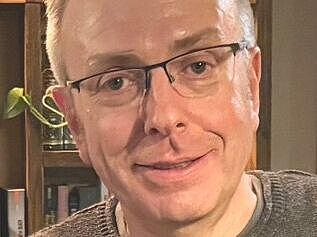The element nitrogen is an essential building block for all molecules of life. In its most prevalent form, as N2 gas in Earth’s atmosphere, nitrogen is almost inaccessible for living organisms, making it an essential nutrient that frequently is a limiting factor for crop yields in agriculture. Our resulting dependency on mineral fertilisers leads to various environmental issues, including the release of greenhouse gases and nitrate accumulation in aquifers.
Nature holds a possible solution to this dilemma, with a single metalloenzyme able to fix inert N2 into bioavailable ammonium. This enzyme, nitrogenase, is a two-component machinery that uses a series of biochemical tricks to generate more reducing power than any other known enzyme, sufficient to overcome the bond energy of the N2 molecule. It is exclusively a microbial enzyme, but transferring its unique metabolic capacities into food crops would open a new era of agriculture independent of fertilizers and higher yields at lower expenses. In this talk, we will discuss what makes nitrogenases such powerful catalysts, how they function on a molecular level, how they are assembled, and how they are regulated. With a focus on molecular structure, the mechanistic details of assembling, operating, and supplying nitrogenase enzymes in the cellular context will be addressed.
Oliver Einsle studied Biology in Konstanz, Germany, and then moved to the Max Planck Institute for Biochemistry in Martinsried, Germany, to work with Robert Huber and Peter Kroneck on cytochrome c nitrite reductase. In 2001 he joined the laboratory of Doug Rees at Caltech, USA, to study nitrogenase, and in 2003 he took on a position as junior professor for protein crystallography in Göttingen, Germany. Since 2008 he has been full professor of Biochemistry in Freiburg, Germany, and director of the Institute of Biochemistry in the faculty of Chemistry and Pharmacy. His group has made seminal contributions to the structural and functional characterization of various metalloproteins, including nitrogenase and nitrous oxide reductase, but also multiheme cytochromes c. A second line of research is centered on the study of integral membrane proteins, in particular bacterial transporters and channels. From 2018 to 2021, he was the Dean of the Faculty of Chemistry and Pharmacy. He received two ERC Grants, the Early Career Award of the Society of Bioinorganic Chemistry, and is a Member of the German National Academy of Sciences Leopoldina.
Begrüßung: Marcus Hoffmann M. A.
Moderation: Professorin Dr. Carola Schulzke
-------
Zugang zum virtuellen Hörsaal des Kollegs
Organisatorische Hinweise
Das Alfried Krupp Wissenschaftskolleg versucht, diese Veranstaltung auch live als Zoom-Meeting bereitzustellen, in dem sich Zuschauende über den Chat schriftlich beteiligen können.
- Wir freuen uns, wenn Sie bei der Einwahl in Zoom Ihren Klarnamen angeben. Selbstverständlich können Sie an der Veranstaltung auch unter einem Pseudonym teilnehmen.
- Eine Liste aller Teilnehmenden ist für alle Beteiligten während der gesamten Veranstaltung einsehbar.
- Während des Vortrages sind die Mikrofone der Zuschauenden alle automatisch stumm geschaltet, um keine störenden Hintergrundgeräusche zu erzeugen. Die Kamera der Zuschauenden kann gern von Ihnen während des Vortrages angeschaltet werden.
- Während der gesamten Veranstaltung können Wortmeldungen bzw. Fragen schriftlich im Chat gestellt werden.
Aufzeichnung
Die Veranstaltung wird aufgezeichnet, um sie für die Mediathek des Kollegs zu nutzen. In der Aufzeichnung wird nur der/die Vortragende, dessen/deren Präsentation sowie der Moderator/die Moderatorin zu hören bzw. zu sehen sein. Chatbeiträge werden nicht aufgezeichnet. Ein „REC“-Zeichen am Bildrand informiert die Teilnehmenden. Sobald alle Beteiligten an der Aufzeichnung der Nutzung zugestimmt haben und alle Nutzungsrechte vorliegen, wird die Aufzeichnung auch in der Mediathek zu finden sein.

